The Foundation of Our Work, Our Learning, and Our Ambition
“But that’s the challenge — to change the system more than it changes you.”
― Michael Pollan, The Omnivore’s Dilemma: A Natural History of Four Meals
How does geographical privilege play a role in British Columbia’s food system? What are some of the ways in which a community can revert back to being self sustainable? How can we make “accessibility” meaningful? These are some of the questions that we are hoping to seek further clarity on as we embark on our adventure (literally and figuratively) to Galiano Island.
Our Team

My name is Mahboobeh but everyone calls me Melody. I am doing my second degree in Nutritional Sciences at UBC. I am an adventurer and enjoy the world’s wonderful things. The Earth is a beautiful place and the benefits of getting outside and enjoying nature are endless. I am an assistant organizer at a meetup group and regularly host hiking, social, and entertaining events. I am also passionate about embracing sustainability and animal welfare.
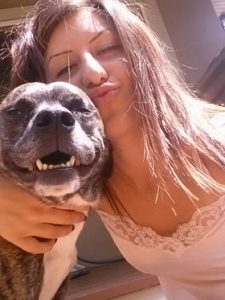
My name is Carla Centola and I am in third year Dietetics! I love everything about food and showing people how to live a healthy lifestyle. I love hiking, biking, and boxing for activity and I love getting out into nature exploring new things. I chose this project as a way to connect my love for animals (as I have been vegan for over four years) and my passion for food! I’m excited to see where this project will take us!
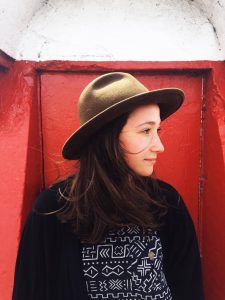
My name is Rachel Spruston and I’m a third year Global Resource Systems student specializing in Sustainable Agriculture. I love travelling, climbing, camping, skiing, sailing, and being on top of mountains. I’m especially passionate about the persistence of diversified, small-scale, agroecological farms feeding their communities all over the world so that farmers can live well and everyone can eat well.

Hello! My name is Ernielly Leo, a tricky name I know so I usually go by Nelly. I am a fourth year LFS student at UBC majoring in Global Resource Systems. My interests lie in resource management and sustainable development. I love taking walks in any of Vancouver’s many parks, exploring and travelling different places, petting dogs, and finding a great book to delve into for hours!
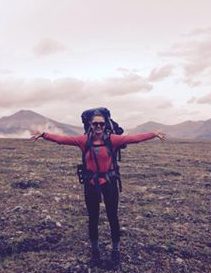
Hi! My name is Danielle Vasicek and I am a fifth year UBC student studying applied animal biology. I have always maintained a passion for animal welfare and aspire to help address, support, and enhance the lives of animals in any way that I can. I enjoy an active and adventurous lifestyle which includes practicing yoga, backpacking and camping, skiing, and climbing. I love working and collaborating with people, trying and learning new things, exploring and travelling, and therefore am very happy to embark on this unique community project and look forward to the semester ahead!
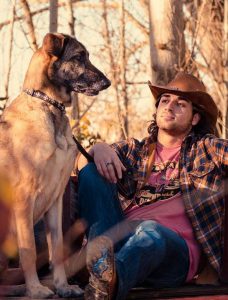
I’m Majid Hajibeigy and currently in my fifth year at UBC! I started out with Applied Animal Biology in LFS and just last spring I changed my major to Food and Environment. I’m currently working on designing an integrated multi-trophic land based agriculture system involving moose, vegetation crops, wild willow, birds and bees, as well as other various insects and microbacterium. My interests heavily revolve around being outdoors, from scuba diving the coastal waters of BC to backcountry tenting atop snow-capped mountains.
Our interests, goals, reasons for choosing this project and our wishes from this experience
Once established as a group on day one, it became quite clear through our introductions and conversations that each and every one of us is excited to embark on this unique island project. We relate to one another with our passions for community food security, local food production, pursuit of good animal welfare, and of course a fun adventure. We are thrilled to have the opportunity to work on a project focussed on addressing the animal welfare impacts of livestock transportation, as this is a significant-yet often overlooked-experience endured by countless domestic animals. Specifically, this is of unique concern to the island farmers, community members, and companies involved (ie BC Ferries) on Galiano, as transportation to the mainland is one of the only ways an animal living on Galiano Island can be properly slaughtered or sold. We are intrigued to learn from and gain experience with the Galiano Community Food Program, in addition to the island’s livestock farmers, food producers, residents, and each other! Moreover, listening to and understanding the experiences of the community itself will add new appreciation, insight, perspective, and diversity to this project. We hope to enhance our research and communication skills and to better comprehend the structure of Galiano Island’s food system. Although we may need to embrace the “discomfort” at times, we look forward to collaborating as a team on this incredible community project and are grateful to experience an adventure to the island very soon! On this trip, we will get hands-on experience with the Galiano Club and its island residents in which we hope to strengthen our connection and dedication to our project through experiential learning.
Herds of sheep on a farm. Source: creativecommons.org
Project Objectives and Community Organization
Our community partner is the Galiano Club, which helps operate The Galiano Community Food Program. The Galiano Community Food Program strives to build community by growing, preparing, preserving and sharing food. The Food Program nourishes and strengthens island food security through learning and sharing skills, in addition to their values of collaboration, forming connections, healthy growing practices, sustainability, and equal food access for all. A key priority of the Food Program is to provide low-cost healthy meals to any community members in need or desire. In collaboration with the Galiano Community Food Program, we will research BC Ferries transportation policies for livestock and create a one to two-page document outlining current policies; additionally, we will form an evidence-based argument for increased attention to animal welfare needs in transportation. We will collect evidence through communication with BC Ferries, interviews with farmers on Galiano Island, and our own independent research. Our research will involve a visit to Galiano Island where we will meet with and interview community members to get to know the Galiano community and gain an understanding of how BC Ferries’ livestock boarding policies affect livestock producers. A key goal is to represent the various perspectives available ranging from the Galiano community to BC Ferries. Through our research we will be able to develop and strengthen our research skills, analyze policy documents, practice written presentation and graphic skills, and apply and practice interview skills.
Goats walking through fences. Source: creativecommons.org
First Impression?
From an Asset Based Community Development (ABCD from here on) perspective, we believe it will be very important to listen to voices of the Galiano Island community members to find out what they wish to get out of this project, the type of resources they have, and what kind of role BC Ferries plays in their community, specifically regarding livestock transportation. Animal transport guidelines are in place so that the work of farmers and handlers in raising livestock is recognized and respected, the physical and emotional condition of livestock is recognized and respected, and the right of consumers to a healthy, safe, and high quality product is recognized and respected. These are all issues of food justice, so animal transportation guidelines should be included in our conversations around food justice.
Furthermore, with our bubbling excitement, we are keeping in mind Ernesto Sirolli’s TED Talk as it is important to keep ourselves grounded and aware of the local strengths, context, and ways of doing things so we do not impose any of our preconceived ideas on the Galiano community. While many of us could recall from LFS 250 the concept of local knowledge and the considerable significance it can hold, we were all affected by the words spoken by Sirolli. We had not heard the advice quite to the degree of Sirolli’s before, spoken both brilliantly and simply; we agree his considerate words will be useful to bear in mind and keep us grounded moving forward with our project. A potential challenge with adopting this mindset may be fearing to share and suggest our opinions and ideas with the local community. Realizing we come from an external perspective and physical location, we strive to be mindful and helpful with our interactions on the island; these ambitions were strengthened after watching Sirolli’s talk. As a team, we feel if we can be respectful, aware, and open minded, we should be able to have open conversations with farmers and community members where ideas and thoughts can flow both ways. The diverse backgrounds and interests of this team will also hopefully be an asset for us in this project, drawing on our various experiences, connections, and knowledge, while simultaneously learning from one another. As we continue working with Jane, the President of the Galiano Club, we hope to draw on some of her knowledge and social capital to provide a holistic understanding and leverage some strengths that are inherent to the Galiano Island community.
From our first meeting with Jane, it would appear that a central focus of this project relates to the community’s desire to revert back to higher local consumption, where 90% of the food consumed in Galiano used to be locally sourced. Currently however, it is the other way around where 90% of the food consumed is imported predominantly from the mainland. Specifically looking at meat production and consumption, a more long-term solution would be the creation of a shared slaughterhouse (abattoir) between three islands: Galiano, Mayne, and Pender. This would further ease the processing of animal products for local consumption. An abattoir project is a much larger undertaking however, therefore at this point our goal is to investigate livestock transportation in BC and address more immediate concerns around BC Ferries’ livestock boarding policies.
After meeting with our community partner, Jane, and collaborating as a team, we feel more assured moving forward with our project initiatives and feel many of our goals are attainable. We were briefed on some of the needs of Galiano’s small community, such as affordable community meals, high dependence on ferry transportation, and the significant impact the Galiano Food club has on their residents. We look forward to our island visit to enhance our appreciation and understanding of Galiano resident situations and respective perspectives. We have made progress by reaching out to some of our contacts and conducting research on animal welfare transportation policies and requirements. We also have some new and exciting ideas we hope to move forward with. One, being that we will synthesize thoughtful and constructive interview questions for Galiano farmers we want to meet with on our visit to the island, (which we believe to be in early March!). Second, we intend to reach out to the farm animal welfare branch of the BC SPCA, as we feel they may have alternative or supportive insight on livestock transportation regarding B.C. Ferries. Perhaps a major anticipated challenge for us would be receiving feedback from B.C. Ferries. We will need to keep in mind this stakeholder may prioritize business and human travelers over livestock.
We do hope to impact the Galiano community in a beneficial manner. We will provide their community with an outline compiled with research on animal transportation policies and what is essential for good animal welfare, integrated with a representation of diverse perspectives on the subject. Hopefully the local farmers will feel their opinions, experiences, and insight were well-represented in the document. Furthermore, we want to help in any way that we can on our trip to the island and learn from their community about island life and their means of food production, processing, and consumption!
Follow us here as we continue to post our findings, challenges, and experiences throughout this journey!
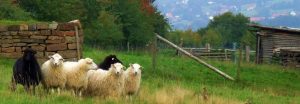
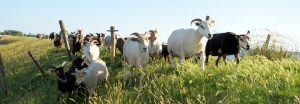
Anonymous
January 16, 2017 — 11:35 pm